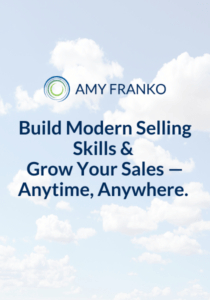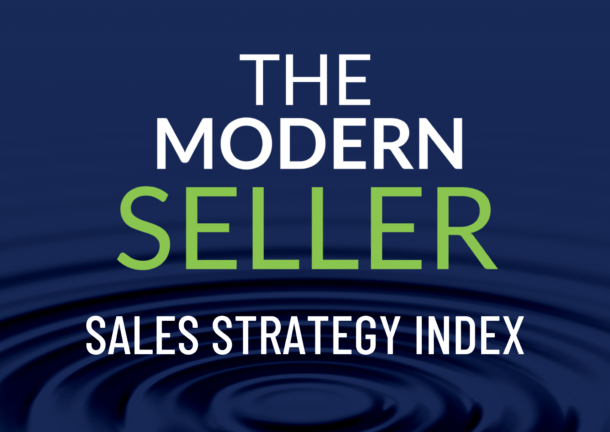When I ask my sales consulting clients what is the most important aspect of earning new business, it’s fairly evenly split between prospecting and closing. The bookends of their sales process. It makes sense, because without prospecting you don’t have opportunities. Without closing you don’t have that new client relationship or the extension of an existing one.
The Most Important Sales Strategy is Qualifying an Opportunity
My argument is that the most important aspect of the sales process is qualifying the opportunity. When I’m conducting sales training, I’ll assess clients on their sales competencies, looking at several opportunities that they consider to be near closing. Over 50% of the time, those opportunities are much further up in the funnel than initially thought. This is repeated across multiple sales professionals and teams, leading to unhealthy pipelines, missed forecasts, and missed sales goals. The business result is lack of sustainable sales growth.
I’ll introduce some strategies to help you think differently about your sales opportunities, so you can better qualify them. Higher quality opportunities lead to higher close rates and ultimately better sales growth.
Qualifying Sales Opportunities Improves Your Overall Sales Process
The best place to begin is with your own sales data to understand where, why, and how many of your opportunities are stalled. This can lead you to the best strategies of solving the issue. For sales leaders, you may have different reasons across your team, and may need to customize your problem-solving strategies.
For example, perhaps a higher percentage of your opportunities stall out after a product demo, engagement letter, or proposal being sent to the client. The frustration sets in when sales professionals don’t get past that phase of the sales process. This can lead to unintended outcomes like pressuring the client or offering discounts that hurt overall profitability and ultimately the relationship.
Symptoms of Poor Sales Qualification
Below are the most common “sales qualifying symptoms” that contribute to opportunities remaining stuck:
- Lack of access to the true decision maker. You might be working with a stakeholder who then must get a final approval. You may also be dealing with decision by committee, whereby several stakeholders have input, and it can be difficult to decipher who has the ultimate decision.
- Lack of identified budget, including the unwillingness or inability on the part of the client to find the budget.
- Lack of urgency or deadlines to fix the problem. Without urgency or a decisive deadline, it’s easy for status quo to set in and a deal to lose its qualification value.
- Need for improved control of the sales process. This often comes down to skill, whereby the sales professional loses control or momentum of the process. Examples are sending a proposal without a review or failing to schedule the next meeting while in the current meeting.
- Lack of emotional connection on the part of the customer to create change. Without an emotional connection or “reason behind the business reason” to change, it can be challenging to overcome.
- Priority on one side of the business but not in other parts of the business. I once had a prospect scenario where the two executives I was speaking with were highly interested in the problem to solve, rating it a 9 out of 10. When we looked at other stakeholders in the business, we realized for them it was only a 7 out of 10. That meant our problem didn’t have high enough stakes to tackle it across the organization.
- You’re trying too hard. When we don’t have enough opportunities in the pipeline, it’s easy to become emotionally attached to those we are working. That can lead to pushy or unintended behaviors, rather than really listening to the client.
- Not enough questions have been asked. This is a hallmark of the consultative seller, asking many questions throughout the process to ensure that the opportunity remains qualified and doesn’t lose its value in the eyes of the client. For each stage of your sales process, do you have some “milestone” questions that need to be addressed before moving to the next stage?
- There isn’t enough value tied to solving the problem. It’s important to confidently speak to business outcomes, measures of success, and both the organizational and personal value to the decision maker in eliminating the problem or harnessing the opportunity. This is an entirely different conversation from the features/benefits conversation that most professional sellers are accustomed to conducting.
Sales Strategies to Better Qualify Opportunities
It’s mindset. The way in which you think, the “talk track” in your mind, and even the way you make your own buying decisions either improve or detract from your ability to smartly qualify an opportunity.
How can we improve our sales mindset and our qualification IQ?
- This first sales strategy comes from my assessment work through Objective Management Group. It’s their Supportive Buy Cycle, which essentially means that how you buy is reflected in how you sell. Consider your own decision-making processes for high-ticket, premium items in your life, and you’ll get some excellent insights into how you might project those preferences onto your clients.
- Your “mental talk track” is a very powerful tool when it comes to how you qualify and move opportunities through your sales pipeline. For example, if you’ve internalized that several iterations of a proposal need to happen for a client to say yes, you’ll act accordingly and may inadvertently slow down their decision-making process. Or if your talk track tells you that you aren’t a peer to your decision maker, it will prevent you from doing the uncomfortable work of sales, like asking tough questions.
- Develop an awareness of where you’re too agreeable with the client. Sometimes in the quest to find common ground and build consensus, there’s too much agreement and too few counterpoints. The risk is an opportunity not fully qualified because the difficult questions or roadblocks aren’t being discussed, only for them to who themselves later in a stalled process. This is where asking thought-provoking questions or providing alternative viewpoints is your most valuable qualification asset.
For an even deeper dive on this topic, you’re invited to my new webinar with SMM Connect. Qualifying: Your Team’s Top Prospecting Skill to Increase Sales is coming up on April 13. Find details below.
Would you like to improve your teams’ Sales Qualification IQ? We can help.
Don’t let your competition get an advantage. We can help. If you’d like more sales strategies to improve your sales process and pipeline, or you’d like an outside perspective, let’s talk. Contact us to schedule a conversation with Amy.


 Our Strategic Selling signature sales training program is now available online. This online sales learning program is ideal for professional services and B2B sales. Get started with 2 free lessons.
Our Strategic Selling signature sales training program is now available online. This online sales learning program is ideal for professional services and B2B sales. Get started with 2 free lessons.